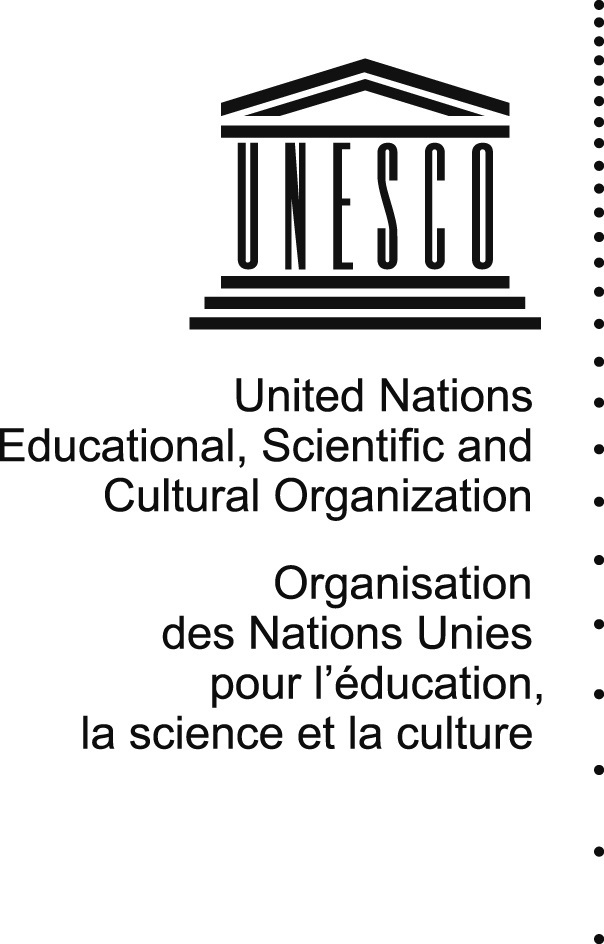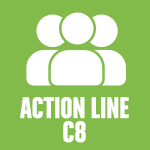ICT4ALL: Indigenous languages Matter for Peace, Innovation, and Development
United Nations Educational, Scientific and Cultural Organization (UNESCO)

Session 259
The High Level Dialogue will provide space for open consultations and encourage discourse on a shift of paradigm on the important role that indigenous languages could play towards sustainable development if ICTs are made accessible, inclusive and affordable for all, including indigenous language users. Indigenous languages are imbued with invaluable potential and universal knowledge that can be unlocked in order to contribute to development and innovation in domains such as education, science and research, culture, policy, industry and environment.
In the past, numerous efforts have been devoted to ensuring equal access to information and knowledge using ICTs, establishing resilient infrastructures, facilitating access to education, health care and employment, combating climate change, as well as strengthening the means for global partnerships. Despite progress made, the needs of indigenous language users have not been fully taken into consideration for policy development, product and services delivery, nor were the underlying ethical dimensions acknowledged.
The panel will build on the outcomes of the recently held consultations for the elaboration of the Global Action Plan for the implementation of the United Nations General Assembly Resolution (REF.: 71/178)[1] that proclaimed 2019 the International Year of Indigenous Languages, and explore ways in which the recommendations could be incorporated and mainstreamed within the WSIS framework on usage of inclusive and accessible ICTs by indigenous language users in all societal domains.
The high-level dialogue also aims to raise global attention on the critical risks confronting indigenous languages and their significance for sustainable development, reconciliation, good governance and peacebuilding. Furthermore, the panel will build synergies and contribute to the ongoing discussions across different WSIS Action Lines.
UNESCO, as lead UN agency for the organization of the International Year of Indigenous Languages and as facilitator of several WSIS Action Lines, will bring together high level panelists who are actively engaged in policy-making, international cooperation, civil society and human rights activities, and industrial development with the aim to share their experiences in the area of digital inclusion and contribute to shaping the Action Lines’ future.
Background
Article 15 of the WSIS Declaration of The World Summit on the Information Society states “In the evolution of the Information Society, particular attention must be given to the special situation of indigenous peoples, as well as to the preservation of their heritage and their cultural legacy”. Since the adoption of the WSIS Declaration in 2003, and of the Tunis Declaration in 2005, various stakeholders addressed the issues of access to information and knowledge for marginalized groups. Numerous examples of effective usage of ICTs proved to be good practices and important means capable of improving the lives of indigenous peoples. The adoption of the UN Declaration on the Rights of Indigenous Peoples in 2006 provided a comprehensive normative framework for the indigenous issues inclusive development.
Although the commitment of the UN to the rights of indigenous peoples are implied in all aspects of the SDGs and articulated in other international documents such as WSIS, this does not automatically result in their inclusion in either general or targeted efforts to meet SDGs and their integration into the national information and technology-related policies, practices and processes. Despite technological progress, many indigenous peoples experience a variety of barriers to access information in cyberspace, access websites and e-content, use mobile phones and applications, television, personal computers, tables and other in their own languages at school, workplace or public domain. The key challenge remains how to effectively provide indigenous language users with access to and control of the use of ICTs to empower them to be a continuing and vital force in global humanity. This will require mainstreaming such perspective in all planned development actions, including legislation, policies and programmes, industrial development in all areas and at all levels of development.
Mainstreaming is crucial in order to promote positive perceptions and greater social awareness towards indigenous language users; to promote the potential of knowledge encoded in indigenous languages; to build digital skills and foster an attitude of respect for the rights of indigenous peoples.
[1] Action plan for organizing the 2019 International Year of Indigenous Languages.
https://en.iyil2019.org/wp-content/uploads/2018/09/N1804802.pdf
Moderator
Ms Irmgarda Kasinskaite-Buddeberg, Programme Specialist, Knowledge Societies Division, Communication and Information Sector, UNESCO
Speakers/Panellists
- Mr Eirik Larsen, Representative of the Sami Parliament (Norway)
- Mr Joseph Mariani, Director of Research Emeritus, Mechanical and Computer Engineering Laboratory, French National Center for Scientific Research (LIMSI-CNRS) (France)
- Ms Emily Taylor, CEO, Oxford Information Labs (UK)
- Mr Patricio Zambrano Restrepo, Ambassador and Permanent Delegate, Permanent Delegation of Ecuador to UNESCO
- Ms Rebecka Forsgren, WIPO Indigenous Fellow
Session's link to WSIS Action Lines
-
 C8. Cultural diversity and identity, linguistic diversity and local content
C8. Cultural diversity and identity, linguistic diversity and local content
Session's link to Sustainable Development Process
-
 Goal 16: Promote just, peaceful and inclusive societies
Goal 16: Promote just, peaceful and inclusive societies